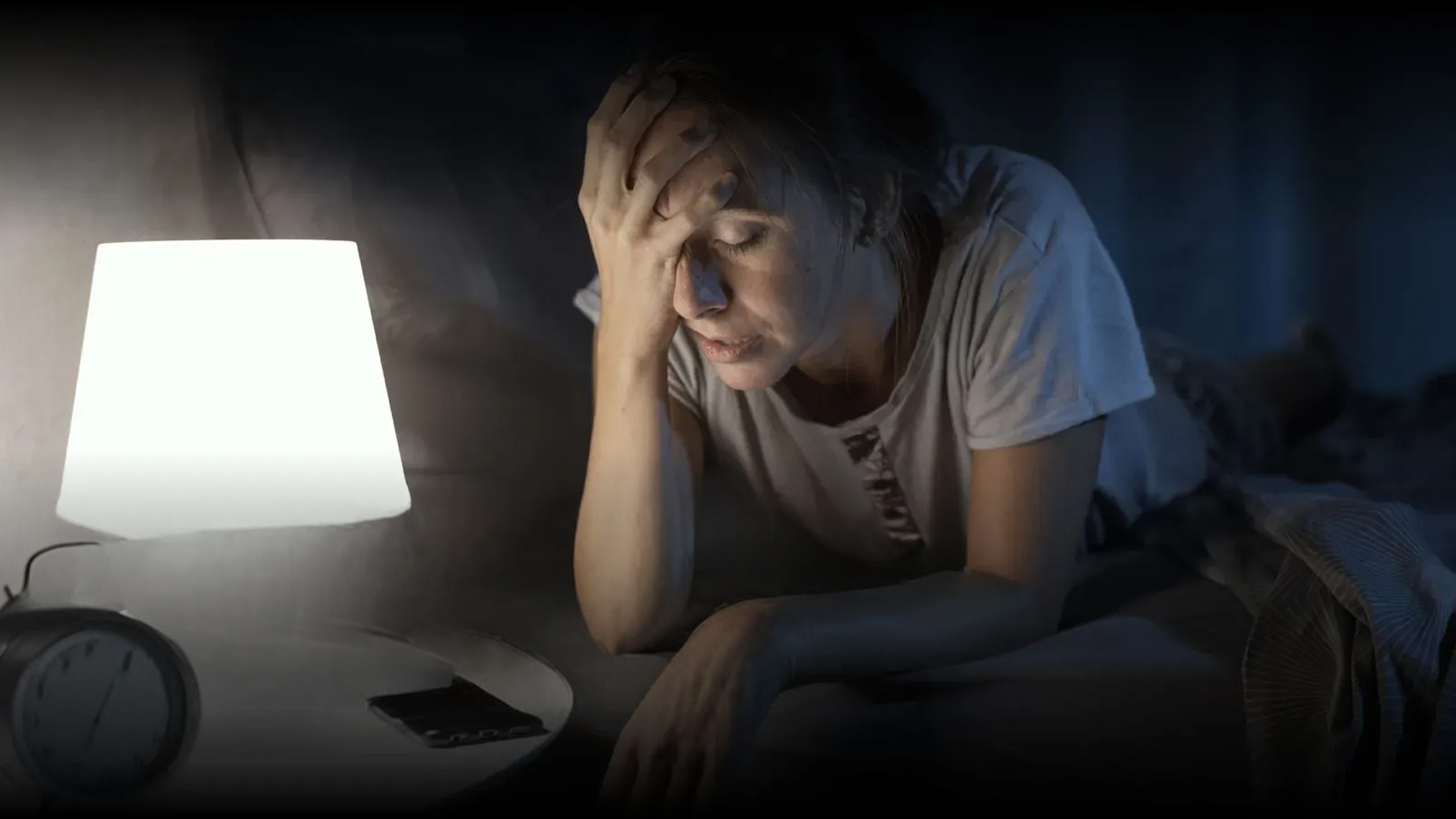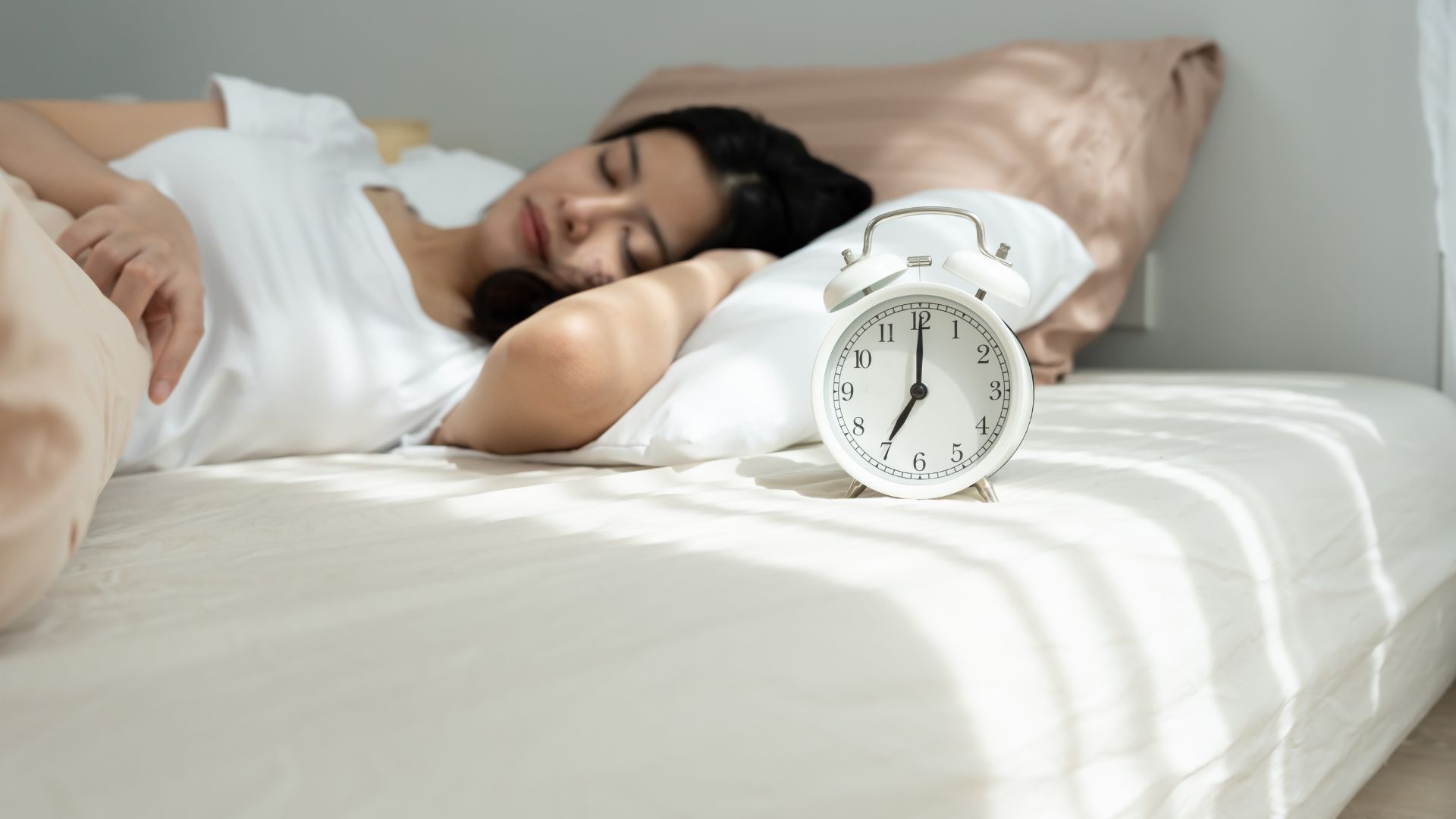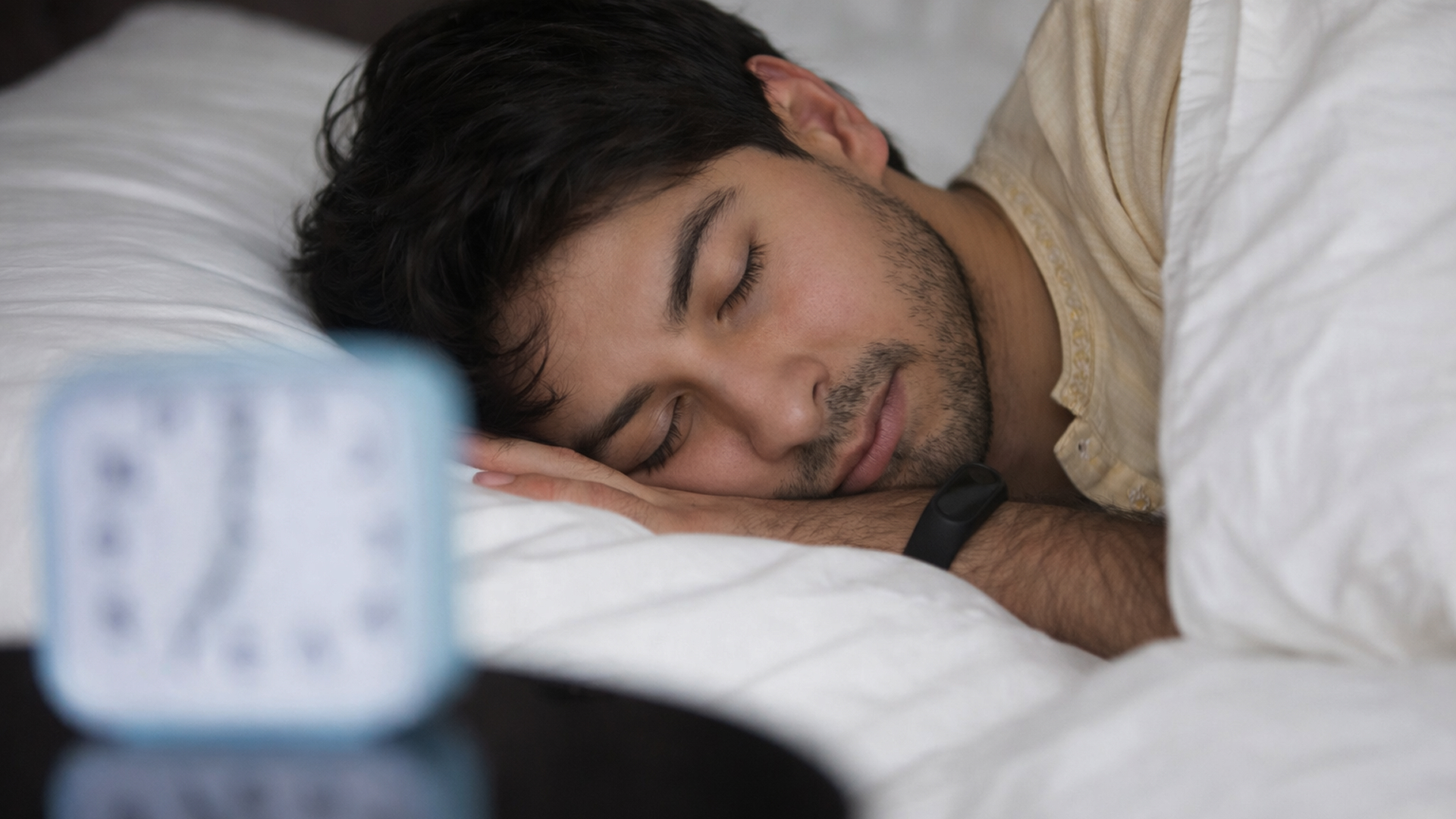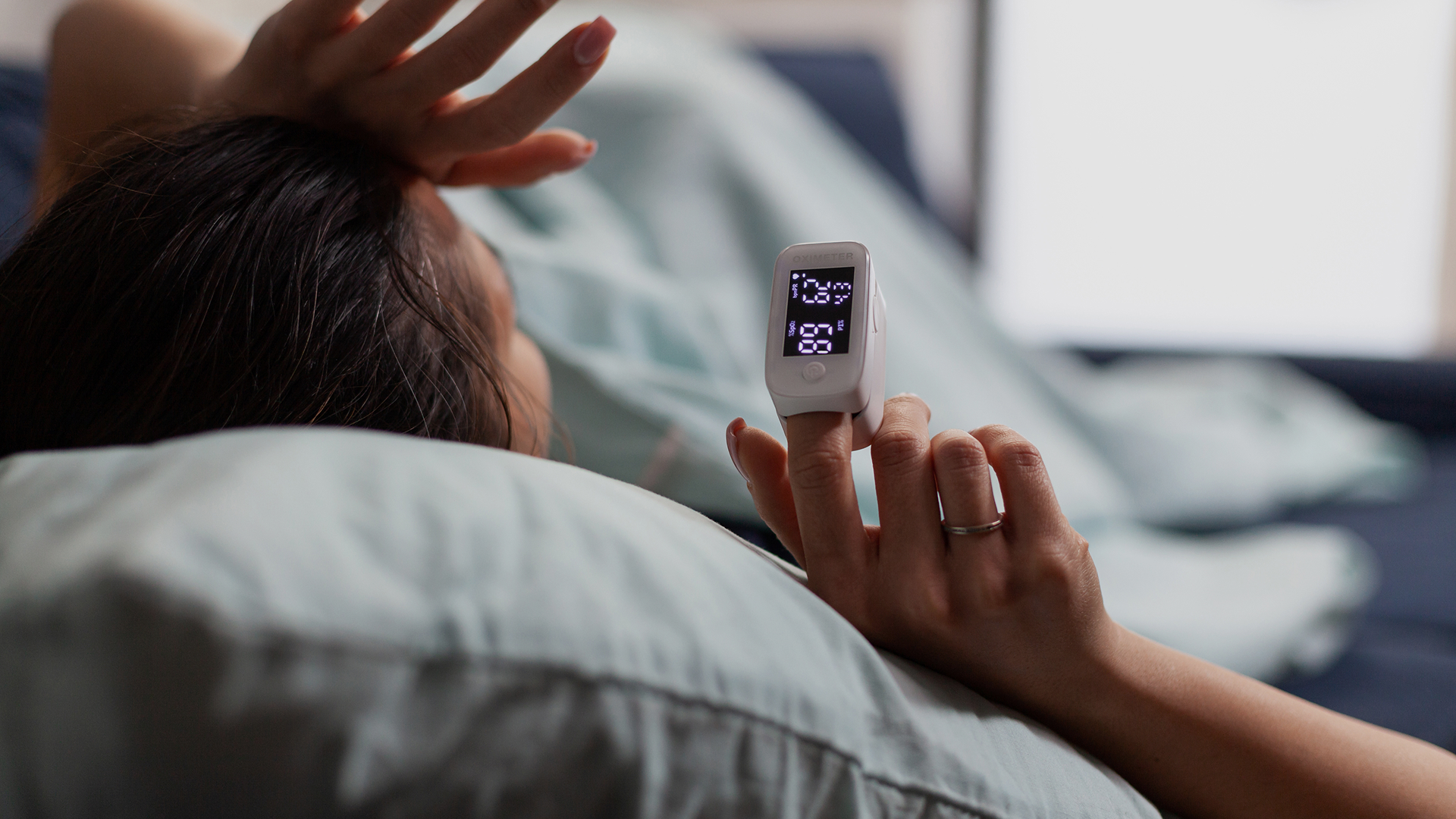Have you ever thought, “I feel awake but I sleep”? Or checked your sleep tracker and discovered you actually had hours of sleep – even when you thought you felt awake all night. This all can be an indication of what is called paradoxical insomnia, or sleep state misperception, or subjective insomnia.
Paradoxical insomnia is compared to recognizable insomnia. For example, we generally recognize insomnia as “almost no sleep”, which is essentially getting little or no sleep. Though paradoxical insomnia describes an individual who feels awake while sleeping, or believes they haven’t slept. Paradoxical Insomnia has under-stood and understudied insufficiencies. Taking the illusion of sleep away, several individuals continue to live with the inconvenience of their sleep state.
In this blog, we will describe what paradoxical insomnia (sleep perception) is in comparison to insomnia despite feeling awake. We will also explore potential treatment options for paradoxical insomnia.
Key takeaways-
- Paradoxical insomnia is a sleep disorder where people feel awake while sleeping, despite getting normal sleep.
2.It causes fatigue, anxiety, and the belief of insomnia despite sleeping.
3. The exact cause of paradoxical insomnia is unclear, but unusual brain activity during sleep may be involved.
4. Diagnosis often requires sleep studies and evaluation by a sleep specialist.
5. Treatment for sleep state misperception includes CBT-I, sleep tracking, and sleep professional support.
What is paradoxical insomnia?
Paradoxical insomnia, or sleep state misperception, describes a situation where you feel like you barely slept despite a sufficient amount of sleep and rest. Many people will often say, “I feel awake, but I sleep.”
Unlike traditional insomnia, paradoxical insomnia symptoms do not include daytime sleepiness or grogginess because the individual’s body is well-rested.
Here the disconnect is in perception rather than physical sleep quality. Since it is difficult to diagnose yourself, it is a good idea to seek out a sleep doctor or a somnologist if you find you have ongoing misperception insomnia and it is affecting your quality of life.
How is INSOMNIA and PARADOXICAL INSOMNIA different?
Insomnia is the inability to fall or stay asleep, causing fatigue, tiredness, and low sleep quality the next day. Insomniacs say they feel sleepy but can’t sleep well.
Paradoxical insomnia (or sleep state misperception) is when someone feels awake and is not aware they have had enough sleeping time. This also describes how an individual often perceives their sleep as lesser than it is while also not experiencing usual daytime sleepiness.
While paradoxical insomnia and paradoxical sleep sound similar, they refer to very different concepts. Paradoxical insomnia is a sleep disorder involving misperception of sleep, whereas paradoxical sleep refers to the REM stage of sleep, where the brain is active but the body is asleep. Here’s a quick comparison to clarify the difference.
| Feature | Paradoxical Insomnia | Paradoxical Sleep (REM Sleep) |
| What is it? | A sleep disorder where a person feels awake despite sleeping. | A sleep stage with high brain activity, also called REM sleep. |
| Type | Sleep disorder | Normal sleep stage |
| Symptoms | Feels like little or no sleep, despite normal sleep on trackers | Dreaming, body paralysis, brain activity similar to wakefulness |
| Cause | Misperception of sleep; exact cause unknown | Natural part of the sleep cycle |
| Diagnosis Needed? | Yes, confirmed by sleep study with a sleep specialist | No, it’s a normal sleep phase |
| Impact on Health | Can cause stress, anxiety, and poor perceived sleep quality | Essential for memory and emotional processing |
What are the symptoms of paradoxical insomnia?
If you’re experiencing confusion about your sleep quality, here are the common symptoms of paradoxical insomnia to help you understand this sleep state misperception better:
- Awake while asleep: You feel like you’ve been awake the entire night, although sleep trackers show you slept fine.
- “I feel awake, but I am asleep” feeling: This is a classic marker of subjective insomnia. Your body is sleeping, but your brain is not on board.
- Insomnia when you would think you slept: There are no obvious daytime sleep deprivation indicators that point to insomnia, unlike conventional insomnia.
- Mild fatigue or unease: One person might feel mildly daytime fatigue, while another feels perfectly fine.
- Sleep anxiety: Next, worry about not sleeping might be interfering with actual sleep patterns.
What are the causes of paradoxical insomnia?
Experts are not sure what causes paradoxical insomnia, but there is some research suggesting possible associations with personality traits, such as neuroticism, that may enhance nighttime anxiety and arousal. Quite different activities have been shown during sleep in subjects with paradoxical insomnia, suggesting different neural sleep patterns not yet detected with current tests.
Paradoxical Insomnia and Related Disorders
Paradoxical insomnia often occurs alongside other conditions, including:
- Obstructive Sleep Apnea (OSA): Individuals with OSA may misjudge their sleep duration.
- Depression: Some individuals diagnosed with major depressive disorder can determine that there is a mismatch between their perceived sleep and what is objectively the case.
- Post-Traumatic Stress Disorder (PTSD): Even with insomnia symptoms, sleep studies show there is little difference, suggesting patients may be dealing with a case of paradoxical insomnia.
- Irritable Bowel Syndrome (IBS): Individuals with IBS tend to underestimate their sleep duration.
Understanding these links can help in the diagnosis and treatment of paradoxical insomnia and related sleep misperceptions.
How is paradoxical insomnia diagnosed?
Diagnosing paradoxical insomnia usually requires a sleep study (polysomnography) to confirm actual sleep versus perceived wakefulness. Actigraphy, a wristwatch-style sleep tracker, can also help.
Because paradoxical insomnia involves sleep state misperception, diagnosis can be challenging and is often made when other treatments fail or other sleep disorders are ruled out.
CBT-I (Cognitive Behavioral Therapy for Insomnia) is an effective treatment for paradoxical insomnia and is available at REMESLEEP, a leading sleep disorder clinic specializing in paradoxical insomnia treatment.
What are the treatment options for paradoxical Insomnia?
Paradoxical insomnia does not have a single treatment that works for everyone but there are several options for someone affected by the disorder. It is important that if you suspect you have paradoxical insomnia, you seek diagnosis and treatment from a sleep specialist or sleep doctor in Mumbai.






